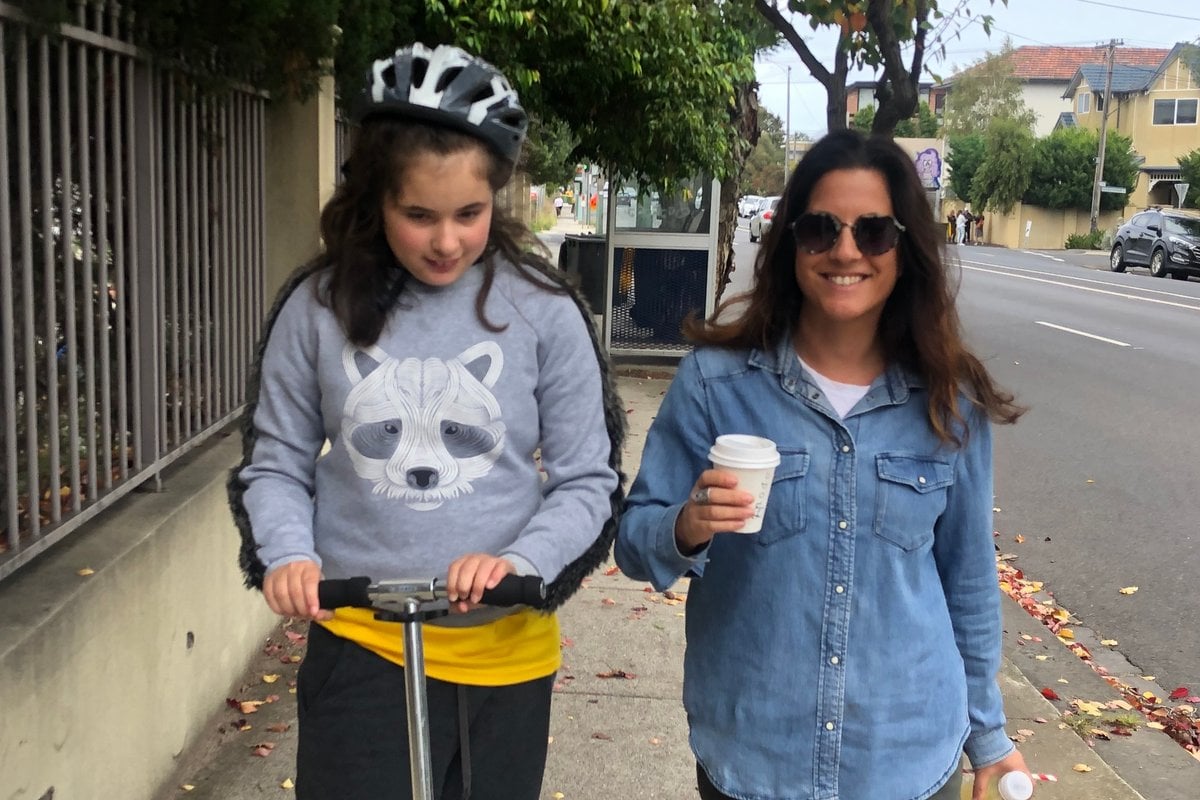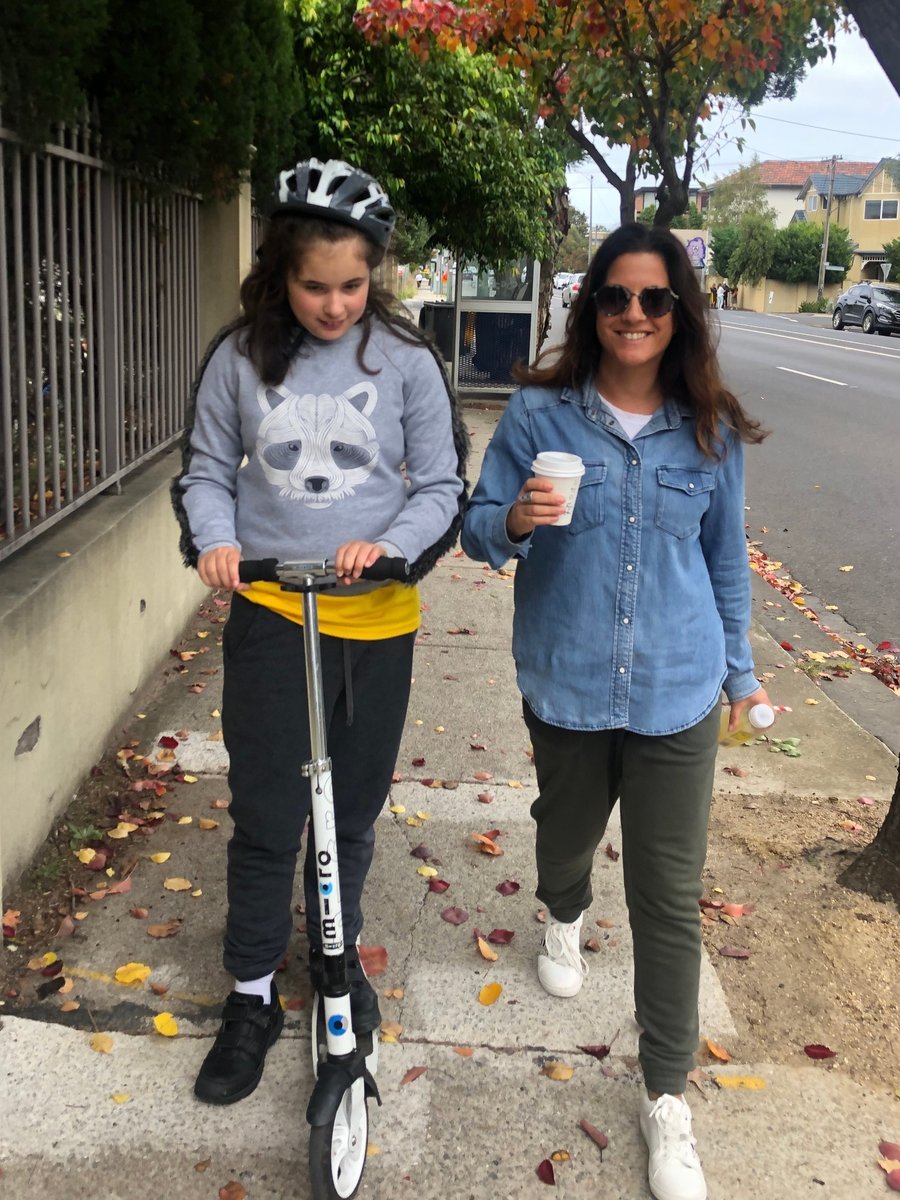
I walk down the street with my daughter’s sweaty hand in mine.
Her gait is slow, and her voice is booming. When she was very little, I used to wonder how long it took for people to realise that she had special needs. Was it instantaneous? As soon as she began to talk to them? I would search their faces to attempt to work it out.
Yet as she has grown, I do not have the luxury of such naivety.
Watch Mia Freedman chat to Vanessa Cranfield about parenting a child with a disability on the No Filter podcast. Post continues after video.
She is 14, yet she carries her favourite doll (or three) everywhere we go.
She regularly has loud outbursts and approaches random strangers. What was once just cute, is now very obviously not age appropriate. Her behaviour on a given day, or at a given moment is dependent on her mood, which is impossible to preempt or predict.
One day our walk may be completed without a hiccup, the next it may result in a meltdown over the fact that I allowed her a chai latte but not a brownie to accompany it.
My daughter is extremely funny and loveable, friendly and sweet, and she has special needs.
We are mostly greeted by strangers and acquaintances with kind, knowing smiles, offers of friendly conversation and polite indulgence of her many questions. My daughter’s wit is dry and hilarious, often prompting much laughter, and I know and feel that she is adored by many.



Top Comments